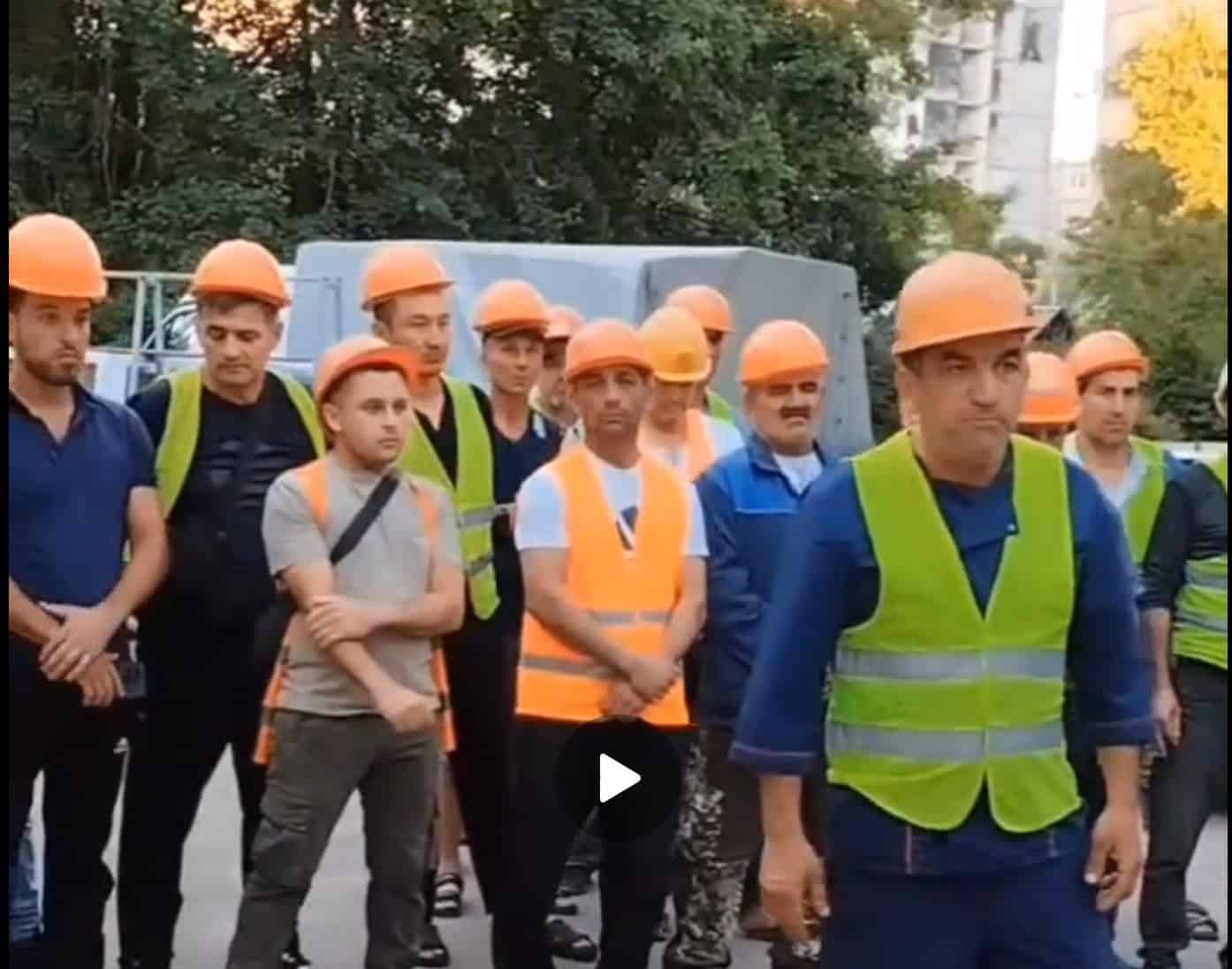

Debts to builders, deception of contract soldiers: Overall lack of finance in the occupied territories
A construction team from Azerbaijan in Mariupol complained about not being paid for more than six months. 0629 published a fragment of a video clip with the construction workers’ complaints to, presumably, local journalists.
“37 families in Azerbaijan are hungry, they have been waiting for money for 6-7 months. This means that tomorrow it could escalate to an international conflict. …We were brought here to rebuild the city and we don’t know how to solve the issue. …We have a director, Dmitry Lvovich, and a director, Korotkov, in Moscow. We appealed to both of them. They said: tomorrow, the day after tomorrow, in a week. It’s been seven months, and we’ve been sitting here without money. …Half of us have left,” said one of the men in the video clip.
The involvement of labourers from the Caucasus and Central Asia in construction work in the cities of eastern and southern Ukraine destroyed and occupied by Russia has been known since around the end of 2022. Due to mass mobilisation and migration, there is a serious labour shortage in the occupied territories.
In Russia, workers from these regions are traditionally engaged in the most unprivileged jobs, often with violations of their rights and even violence. Nevertheless, such labour migration is popular because of poverty, unemployment and similar lawlessness in the workers’ home countries.
As can be seen from recent publications on the websites of the occupation administrations, the occupation authorities are currently trying to regulate labour migration. For example, at the end of August 2024, local occupation administrations published an explanation for employers on how to engage foreign workers. It was about the need to apply for a quota for the employment of migrants through a special service.
A few days earlier, the websites of the occupation administrations in the Luhansk region had disseminated “information for employers planning to hire migrant workers”. The information consisted of a few sentences: “Due to the social significance of the issue of harmonisation of interethnic relations when employers of the Luhansk People’s Republic engage labour migrants, it is recommended to consider the possibility of attracting workers from the Central Asian region through an organisational set using the electronic service ‘Work in Russia’”.
It is difficult to understand the emphasis of the recommendation from the message: to attract workers “from the countries of the Central Asian region” or to attract them only in an orderly manner through the “Work in Russia” service. Presumably, it was the latter.
However, the non-payment of wages to foreign workers in Mariupol is not a sign of an “international conflict” or problems in “interethnic relations”, but rather a general lack of finances. Recently, a Russian media outlet in Mariupol reported that the city’s kindergartens had reduced their opening hours due to a lack of funding for feeding the children.
RIA Pivden also drew attention to the non-payment of incentive bonuses for signing contracts with the Russian armed forces in the occupied part of Zaporizhzhia region. The Russian authorities promise such bonuses to all volunteers to fight against Ukraine on the side of Russia.